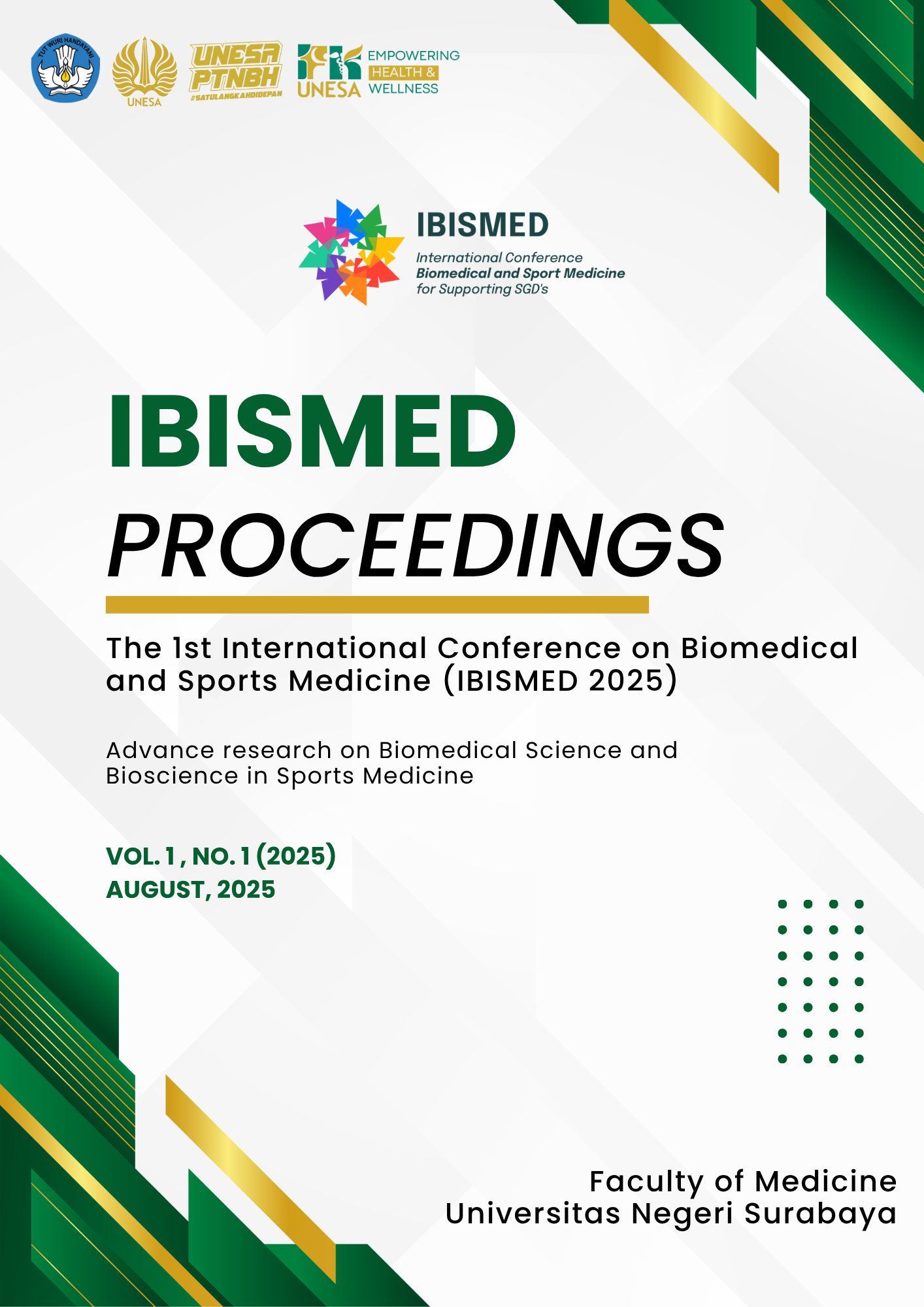The Role of Artificial Intelligence in Diagnosis and Clinical Decision-Making in Nursing
Keywords:
Artificial Intelligence, Nursing, Diagnosis, Medical Technology, Decision MakingAbstract
The integration of Artificial Intelligence (AI) into healthcare is profoundly reshaping nursing diagnosis and clinical decision-making. This study explores how AIparticularly Clinical Decision Support Systems (CDSS) and Decision Support Systems (DSS)has enhanced nursing practice between 2020 and 2025. Employing a mixed-method approach combining bibliometric analysis, participatory system design, and qualitative field studies in Europe, the research identifies emerging trends, practical challenges, and implementation opportunities in AI-enabled nursing care. Bibliometric data reveal a surge in global publications focusing on early detection, diagnostic accuracy, and personalized care. Participatory studies conducted in Germany and Austria illustrate how AI tools reduce nursing workload, aid complex decisions, and improve interprofessional coordination. However, concerns remain regarding data privacy, system transparency, and the erosion of human interaction. The findings emphasize the need for AI to function as a cognitive partner, complementing rather than replacing nurses. Successful integration depends on ethical design, contextual adaptation, and human-centered development. In low-resource settings like Indonesia, AI-aligned digital interventions have significantly improved maternal health education and pediatric nutrition. This study concludes that AI holds transformative potential when developed collaboratively, applied ethically, and tailored to diverse healthcare contexts. Future research should investigate long-term impacts, equity in access, and nursing competencies for safe and empathetic AI use.
Downloads
References
Al Khatib, I., & Ndiaye, M. (2025). Examining the role of AI in changing the role of nurses in patient care. BMC Nursing, 24(1), 77. https://pubmed.ncbi.nlm.nih.gov/39970436/
Balpande, M., Bagul, N., Kakde, A., & Gawande, S. (2025). Artificial intelligence transforming healthcare and nursing: A comprehensive bibliometric analysis. Journal of Medical Artificial Intelligence, 8, 55. https://doi.org/10.21037/jmai-24-437
Computers, Informatics, Nursing. (2024). The impact of artificial intelligence assisted learning on nursing students' ethical decision making in pediatric care. Computers, Informatics, Nursing, 42(2), 75–83. https://pubmed.ncbi.nlm.nih.gov/39152099/
Demarcsek, R., Schantl, J., & Duftschmid, G. (2025). Design of a decision support system for chronic pain management to support and empower nursing professionals. Studies in Health Technology and Informatics, 307, 25–32. https://doi.org/10.3233/SHTI250185
Formosa, P., Rogers, W., Griep, Y., Bankins, S., & Richards, D. (2022). Medical AI and human dignity: Contrasting perceptions of human and artificially intelligent decision making in diagnostic and medical resource allocation contexts. Computers in Human Behavior, 133, 107296. https://doi.org/10.1016/j.chb.2022.107296
Giordano, C., Brennan, M., Mohamed, B., et al. (2021). Accessing Artificial Intelligence for Clinical Decision-Making. Frontiers in Digital Health, 3, 645232. https://doi.org/10.3389/fdgth.2021.645232
Gleim, A., Ruiken, H., Becker, M., Reiter-Theil, S., & Schmitt, F. (2025). Participatory design of an AI-based CDSS for delirium prevention. Studies in Health Technology and Informatics, 307, 65–72. https://doi.org/10.3233/SHTI250357
JBI Research Team. (2022). Contributions of artificial intelligence to decision making in nursing: A scoping review protocol. JBI Evidence Synthesis, 20(12), 3124–3131. https://pubmed.ncbi.nlm.nih.gov/36648981/
John Wiley & Sons Ltd. (2025). The role of artificial intelligence in nursing care: An umbrella review. Journal of Advanced Nursing. https://pubmed.ncbi.nlm.nih.gov/40222025/
La Saudi, Allenidekania, & Agustini, N. (2021). Effectiveness of a conservation energy model for nutrition problems in children with cancer. Enfermería Clínica, 31, S82–S85. https://doi.org/10.1016/j.enfcli.2020.10.013
La Saudi, Nurhaeni, N., & Hayati, H. (2020). The effectiveness of health education using mobile phone-based audiovisual on knowledge and attitude among mother in treating toddler with pneumonia. International Journal of Nursing and Health Services, 3(2), 305–315. https://doi.org/10.35654/ijnhs.v3i2.305
La Saudi. (2020). Effectiveness of nutrition education on nutrition parenting of mother with stunting toddlers. International Journal of Science and Research, 9(12), 764–767. https://doi.org/10.21275/SR201208111007
Lintz, J. (2025). Exploring the impacts of artificial intelligence interventions on providers’ practices: Perspectives from a rural medical center. Journal of Medical Artificial Intelligence, 8, 39. https://doi.org/10.21037/jmai-24-422
Martinez Ortigosa, A., et al. (2023). Applications of artificial intelligence in nursing care: A systematic review. Nursing Open. https://pubmed.ncbi.nlm.nih.gov/40225652/
Naik, N., Hameed, B.M.Z., Shetty, D.K., et al. (2022). Legal and Ethical Consideration in Artificial Intelligence in Healthcare: Who Takes Responsibility? Frontiers in Surgery, 9, 862322. https://doi.org/10.3389/fsurg.2022.862322
O'Connor, S., Yan, Y., Thilo, F. J. S., Felzmann, H., Dowding, D., & Lee, J. J. (2023). Artificial intelligence in nursing and midwifery: A systematic review. Journal of Nursing Scholarship, 55(4), 435–445. https://pubmed.ncbi.nlm.nih.gov/35908207/
Sharma, R. M. (2025). Artificial intelligence in medical image analysis and molecular diagnostics: Recent advances and applications. Journal of Medical Artificial Intelligence, 8, 53. https://doi.org/10.21037/jmai-24-412
Thomas, C. B., & Finnie, R. (2025). Overcoming adoption challenges: Bridging the gap between AI algorithm development and implementation in healthcare. Journal of Medical Artificial Intelligence, 8, 47. https://doi.org/10.21037/jmai-24-418
Universiti Sains Malaysia. (2022). Systematic review of the application of artificial intelligence in healthcare and nursing care. Healthcare Informatics Research, 28(3), 200–210. https://pubmed.ncbi.nlm.nih.gov/39416729/
Downloads
Published
How to Cite
Issue
Section
License
Copyright (c) 2025 Meizha Nadzwa Riyadi Putri

This work is licensed under a Creative Commons Attribution-NonCommercial 4.0 International License.
 Abstract views: 112
,
Abstract views: 112
, PDF Downloads: 114
PDF Downloads: 114


